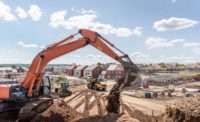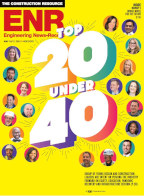Recent news reports involving storm damage investigations performed by engineering firms have raised serious issues regarding professional practices. The firms are accused of colluding with insurance firms and of fraudulently altering reports, leading to lawsuits and criminal probes. These allegations are extremely damaging to the engineering profession and they undermine trust that the public rightfully places in engineers.
These cases involve engineering firms that were hired by insurers to inspect properties damaged by Superstorm Sandy. Typically, insurers asked the engineers to distinguish damage caused by wind and rain from damage caused by flood, and to separate damage from preexisting conditions. Based on the findings in the engineering report, the insurance company determined whether there was coverage.
 |
| PERAZA |
I suspect the main reason that some of these reports were extensively rewritten was because the underlying investigations, and the initial reports, were of poor quality.
Why might the reports have been of such poor quality? One reason is that there was a shortage of engineers who were experienced with this type of investigation. A catastrophe such as Superstorm Sandy creates a spike in the demand for engineers. Insurers need thousands of buildings inspected quickly. Local engineering firms tried to meet the demand but had difficulty. This was particularly true in the Northeast, where it had been many years since a major storm had struck.
Challenges From Each Approach
To meet the demand, local engineering firms used various approaches, such as deploying multiple inspection teams, bringing in staff from other offices, using younger staff to perform field inspections under the supervision of an experienced engineer or hiring subconsultants. Each approach has quality control challenges.
Another reason why reports may have been of poor quality is that there are few resources available to engineers about how to perform this type of investigation. This is not a subject that is taught in college, and it requires an understanding of diverse specialized topics, such as structural engineering, the science of ocean wave behavior, wind effects on structures, meteorology, familiarity with a wide variety of construction types and forensic skills. Most civil engineers are knowledgeable about some of these topics, but they may have no formal training or experience in others. And there are few written resources with all this information.
How can we improve the quality of these engineering investigations? One way is by education. This can take the form of seminars, webinars, independent study or publications that are geared toward this type of investigation. The American Society of Civil Engineers recently published a resource titled "Engineering Investigations of Hurricane Damage: Wind Versus Water." Along with two colleagues, I coordinated its preparation. This one-stop resource provides engineers with the background and guidance necessary to provide high-quality services based on sound technical principles.
Another way to improve quality is by having proper peer reviews performed by competent reviewers trained in the subject area. The comments must be provided to the preparer, and there must be a mechanism for resolving the comments. A proper peer review will always improve the quality of the report and may sometimes result in significant changes to the report.
Engineers have a duty to the public, a duty that transcends their obligations to a client. That duty includes providing objective engineering opinions that are based on facts, technical competence and honest conviction. Raising the quality of these investigations is essential to fulfilling this duty.
David B. Peraza is a principal engineer of Exponent, a consulting engineer based in New York City. He can be reached at 212-895-8100.



Post a comment to this article
Report Abusive Comment